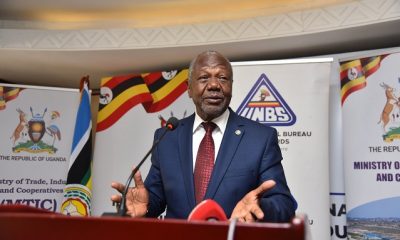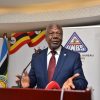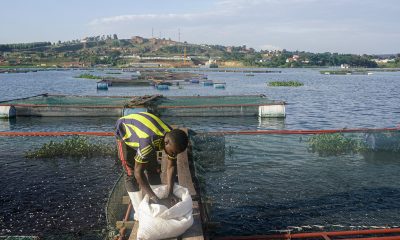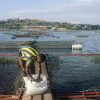Analysis
Typhoid: Government agencies deny responsibility despite damning WHO report

WHO says tha drinking water in Kampala is highly contaminated
The WHO revelation that drinking water and juices, which most people ordinarily trust are highly contaminated, is a major let-down by the two institutions but also a wringing indictment on the government agencies.
The outbreak of typhoid which has killed over 50 people, working mostly in Kampala, and left close to 2000 infected with the disease, started at the beginning of the year coinciding with the start of the hot season that made water and juice, the fastest moving consumer products.
But many keen followers of the media in Uganda would be hardly surprised by the findings of the WHO report judging by several media reports that show that some water bottling companies were vending contaminated water and calling in distilled mineral water.
Before he was fired from his mid-morning political-social affairs programme, Kizito Basajjakkambwe had launched a major war against UNBS for failing to reign in a Chinese company whose bottled water, Basajjakkambwe found out after testing, was contaminated.
Geoffrey Muwanguzi, a pick-up driver in Kampala who survived typhoid attack three years ago also pins water bottling companies for threatening his life and those of millions of Ugandans by selling contaminated water.
Muwanguzi alleges that while working in a Chinese construction company about three years ago, he was attacked by typhoid despite the fact that he religiously drunk bottled water from Uganda’s oldest water bottling company. He suspects that many bottling companies simply purify water but do not boil it.
In fact, while President Yoweri Museveni recently lashed out at Ministry of Health’s Education Department for failing to sensitize the general public about how to prevent the disease, others believe perhaps that the president evaded heaping blame on other players such as ‘investors’ and his blue-eyed girl Jennifer Musisi.
Dr. Lulume Bayiga, MP Buikwe County South and the shadow minister for health, blames several government agencies for failing to coordinate their activities in ensuring that Ugandans access safe drinking water.
Bayiga argues that there must be collaboration between various government departments to ensure that the government delivers on its promise of protecting the lives of Ugandans.
Bayiga further says that National Water and Sewerage Corporation (NWSC) should be investigated to ensure that sewerage does not mix with drinking water.
Bayiga said: “We believe there is a port of entry between the water we drink and sewerage.”
He says that many water companies simply use water from underground water sources that is not boiled.
NWSC this week sponsored a full page advert to deny social media claims that their water is contaminated.
They were backed by the Permanent Secretary in the Health Ministry of Health Asuman Lukwago who said all piped water in Kampala is 100 percent safe.
Despite recurrent complaints from the media and general public about the circulation of contaminated drinking water in Kampala, UNBS’s Public Relations officer Sylvia Kirabo told The Sunrise that her organisation is only responsible for brands that bear their quality mark.
Sadly however, many unsuspecting Ugandans are not that sophisticated to check whether or not the water and juice they buy bears their quality mark.
Comments


















